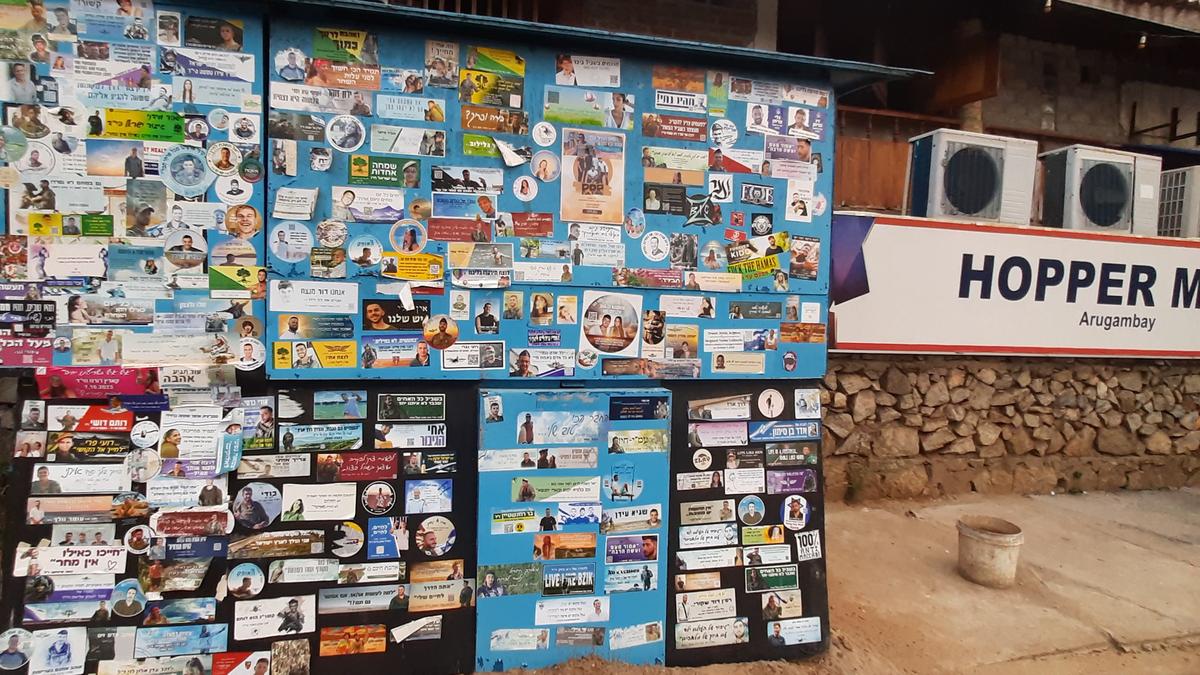
As Sri Lanka expresses solidarity with Palestine, Israeli tourists dominate island’s scenic Arugam Bay
The Hindu
Arugam Bay, Sri Lanka's surf capital, attracts Israeli tourists despite Sri Lanka's support for Palestine.
ARUGAM BAY/AMPARA
While Sri Lanka continues to voice concern over Israel’s ongoing war on Gaza, consistently calling for ceasefire and reiterating its “long-standing and unwavering support” for the Palestinian cause, a popular tourist spot on the island’s east coast is welcoming thousands of Israeli visitors.
Arugam Bay, located in the south-eastern Ampara district, is the island’s surf capital, with its scenic coast drawing a huge number of tourists every year. Arty cafes, restaurants, hotels, surf board and swimwear stores line the margins of this stretch that is sandwiched between Pottuvil town and Panama village. The district is home to people from Sri Lanka’s three main ethnic groups – Sinhalese, Tamil and Muslim, but the signage in Arugam Bay’s appears to be catering mostly to visitors, especially Israelis. Several eateries, spas, money-changing outlets have Hebrew signboards prominently displayed at the entrance.
“It is to draw Israeli tourists who are the main clientele for us in Arugam Bay,” said K. Jaseem, staff at a swimwear shop. Although arrivals from Israel hardly top Sri Lanka’s tourism charts — India does — most Israelis visiting seem to head east on the island. Local traders estimate that Israeli tourists more than 50 % of their clientele, followed by Europeans, many of them eager surfers. While tourists typically spend weeks in Arugam Bay, primarily surfing and visiting nearby national parks, some stay on for months. According to the Sri Lankan Tourism Development authority, a total of 19,517, out of the total 1,487,303 tourist arrivals last year, were Israelis. This year, as many as 20,515 Israelis have visited until September.
The annual surfing season has nearly ended in October and will pick up again in March, according to traders. Arugam Bay, known for its “point breaks”wherewaves break along headland, is an attractive spot for surfers who enjoy riding long waves that gently wrap the shore. The potential for tourism business here has put a high premium on land nearby, and locals say they are constantly fighting to keep their plots.
Traders in the area, many of whom are Muslim, said the Israeli tourists were an important source of revenue for local businesses. “We may oppose a country’s actions, but we cannot chase away tourists from anywhere. They support businesses here and bring in dollars that help the country boost its foreign reserves,” a Muslim businessman running a store on the stretch told The Hindu last week. “We are just recovering after the cumulative impact of the Easter Sunday bombings of 2019, the pandemic and then our country’s economic crisis. Sending away willing tourists will not help us,” he added.
Further, the visiting Israeli tourists have set up a “Chabad” house — a Jewish community centre — down a narrow lane leading to a charming, minimalist mosque. “Their centre is right next to the masjid,” said a young staff member at a nearby hotel. Anticipating surprise at the proximity, he added: “It is like that only.”











